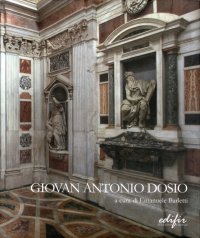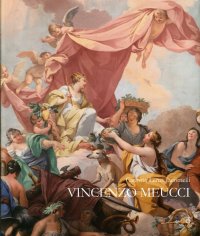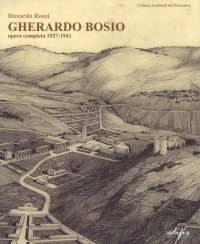Gio. Benedetto Castiglione Genovese. Il Grechetto a Roma. Committenza e opere
A cura di Orlando Anna e Francesco Rotatori.
Genova, 2023; br., pp. 304, ill. col., cm 23x29.
prezzo di copertina: € 150.00
|
Libri compresi nell'offerta:
Gio. Benedetto Castiglione Genovese. Il Grechetto a Roma. Committenza e opere
A cura di Orlando Anna e Francesco Rotatori.
Genova, 2023; br., pp. 304, ill. col., cm 23x29.
OMAGGIO (prezzo di copertina: € 150.00)
Giovan Antonio Dosio Da San Gimignano Architetto e Scultor Fiorentino tra Roma, Firenze e Napoli
A cura di Emanuele Barletti.
Fotografie di BACHerin Paolo e Saverio De Meo.
Prima edizione 2011.
Firenze, 2011; ril., pp. 844, ill. b/n e col., tavv., cm 24x28,5.
OMAGGIO (prezzo di copertina: € 98.00)
Vincenzo Meucci
Co-Editore: Cassa di Risparmio di Firenze.
Firenze, 2015; cartonato, pp. 304, ill. col., cm 25x29,5.
(Arte).
OMAGGIO (prezzo di copertina: € 50.00)
Gherardo Bosio. Opera Completa 1927-1941
Firenze, 2016; br., pp. 368, ill. b/n e col., cm 23x28.
(Architetti del Novecento. Storia e archivi).
OMAGGIO (prezzo di copertina: € 60.00)
Pisanello and the Grounds of Invention
C. Jean Campbell
Harvey Miller Publishers
Testo Inglese.
London, 2024; ril., pp. 188, 69 ill. col., cm 22x28.
(Renovatio Artium. 15).
collana: Renovatio Artium.
ISBN: 1-915487-12-9 - EAN13: 9781915487124
Soggetto: Arti Grafiche (Disegno, Incisione, Miniatura),Pittura,Pittura e Disegno - Monografie
Periodo: 1400-1800 (XV-XVIII) Rinascimento
Testo in: 
Peso: 0 kg












